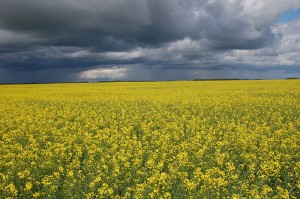I’m baaaaackkk.
With newly fueled, intense feelings about how much BAD FOOD may still be hiding in your life.
I want you to live a long, strong, bada$$ life. I want you to do this by lifting heavy (preferably at CFR, of course), and by avoiding little white lies.
They are bad for your health, you know this-your parents have been telling you this since you were 5: ”Honesty is the best policy”. This we know. So, don’t skip reps in your WOD, and
DO NOT EAT VEGETABLE OIL.
Vegetable oil? What is wrong with vegetables?!? (And better yet, what does vegetable oil have to do with little white lies?)
Great questions. Nothing is wrong with vegetables. Eat them until the grass-fed cows come home.
Vegetable oil, on the other hand, is a lie. It is not made of vegetables. Think about it for a moment: when is the last time you were in the produce section thinking, “Man, that cauliflower looks extra greasy today….”. Yeah, that would be never.
Now an even better question: when is the last time you picked up some delicious rapeseed or canola at the farmers market? Yeah, that would also be never. Read on to find out why…
You better check yo’self, before you wreck yo’self
Vegetable oils (and margarine, made from these oils) are oils extracted from seeds like the rapeseed , soybean, corn, sunflower, safflower, etc. They were practically non-existent in our diets until the early 1900s when new chemical processes allowed them to be extracted. Unlike butter or coconut oil, these vegetable oils can’t be extracted just by pressing or separating naturally. They must be chemically removed, deodorized, and altered.
“During WWII, inedible rapeseed oil was used as a high-temperature lubricant on steam ships, but with the switch to diesel engines in the following decade, industrial demand declined. Initially, consumer demand for rapeseed oil was negligible because it naturally contains high amounts of erucic acid.(–a substance associated with heart lesions in laboratory animals–) Erucic acid was enough of a concern that in 1956, the U.S. Food and Drug Administration (FDA) banned rapeseed oil for human consumption. In addition, demand for rapeseed meal was low because of high levels of glucosinolates, a compound that at high doses depresses animal growth rates.
By the early 1970s, plant breeders developed low-erucic acid rapeseed (LEAR) varieties that also had low glucosinolate content. In 1978, the Western Canadian Oilseed Crushers Association registered these varieties with the name “canola” for marketing reasons. (…CANada OiL…) Over the next 10 years, European seed producers also developed LEAR varieties, which they dubbed “double-zero” or “canola-equivalent.”
Because of the higher palatability of LEAR varieties, FDA granted the oil produced from LEAR varieties Generally Recognized as Safe (GRAS) status on January 1, 1985. With its low level of saturated fat, LEAR oil appealed to health-conscious consumers, and production increased steadily.” (CLICK for source: USDA Economic Research Service)
So, canola oil has been GENERALLY REGARDED AS SAFE (?!? Seriously. I have more than a ‘general regard’ for the safety of people I don’t even like. Researching this is giving me nightmares) since 1985, it is genetically modified, and it is found in a majority of items on the inside aisles of your local grocery store. From organic salad dressing, to sports drinks and ice cream, to fluffy loaves of bread.
Just to reiterate… your great-grandparents, grandparents, parents, and you, never touched this stuff until 1985, because it was either stuck in a pretty yellow flower and inaccessible, or because it was BANNED.
Just take one gander at the increase of use in the last few decades…
Wait, are you still wondering why canola is referred to as a vegetable oil?
Me too…
You WILL have a reaction to this video.
And you REALLY need to watch it: use your sharp, conventional-wisdom-questioning eye…
Seems pretty natural, right?!? You’re just dying to run back to the low-fat craze, aren’t’ ya? (Death pun intended) That ‘first solution’ they refer to? It’s hexane. And after you take the ‘vegetable’ oil home and use it to cook with…it further oxidizes and becomes even more dangerous. ‘Chemical analysis shows that even bottles of organic, expeller-pressed canola oil contain as much as 5% trans fats, plus cyclic hydrocarbons (carcinogens) and oxyphytosterols (highly damaging to arteries). (Shanahan,2009, Deep Nutrition, 181) No. I actually want to go home and eat kerrygold butter from the tub after watching that. Right after I go to all of my relatives’ homes and throw out their vegetable shortening. And then buy a cow to feed grass so I know my meat isn’t chocked full of CANOLA CAKE. Unless it’s fueling your diesel VW…I don’t think I need to answer that one for you. So, no more little white lies….do not cheat yourself on your wod, and do not ingest steam ship lubricant. Until Next Time… Mallory
Ew, ew, EW!
ARE WE SCARED OF GOOD FATS?
ARE WE SCARED OF HEXANE-WASHED-SUPER-HEATED-CENTRIFUGED-BLEACHED-DEODORIZED-DESLUDGED-PRETTY-YELLOW-FLOWER-OIL?
One Response to “Little White Lies”



Great article!